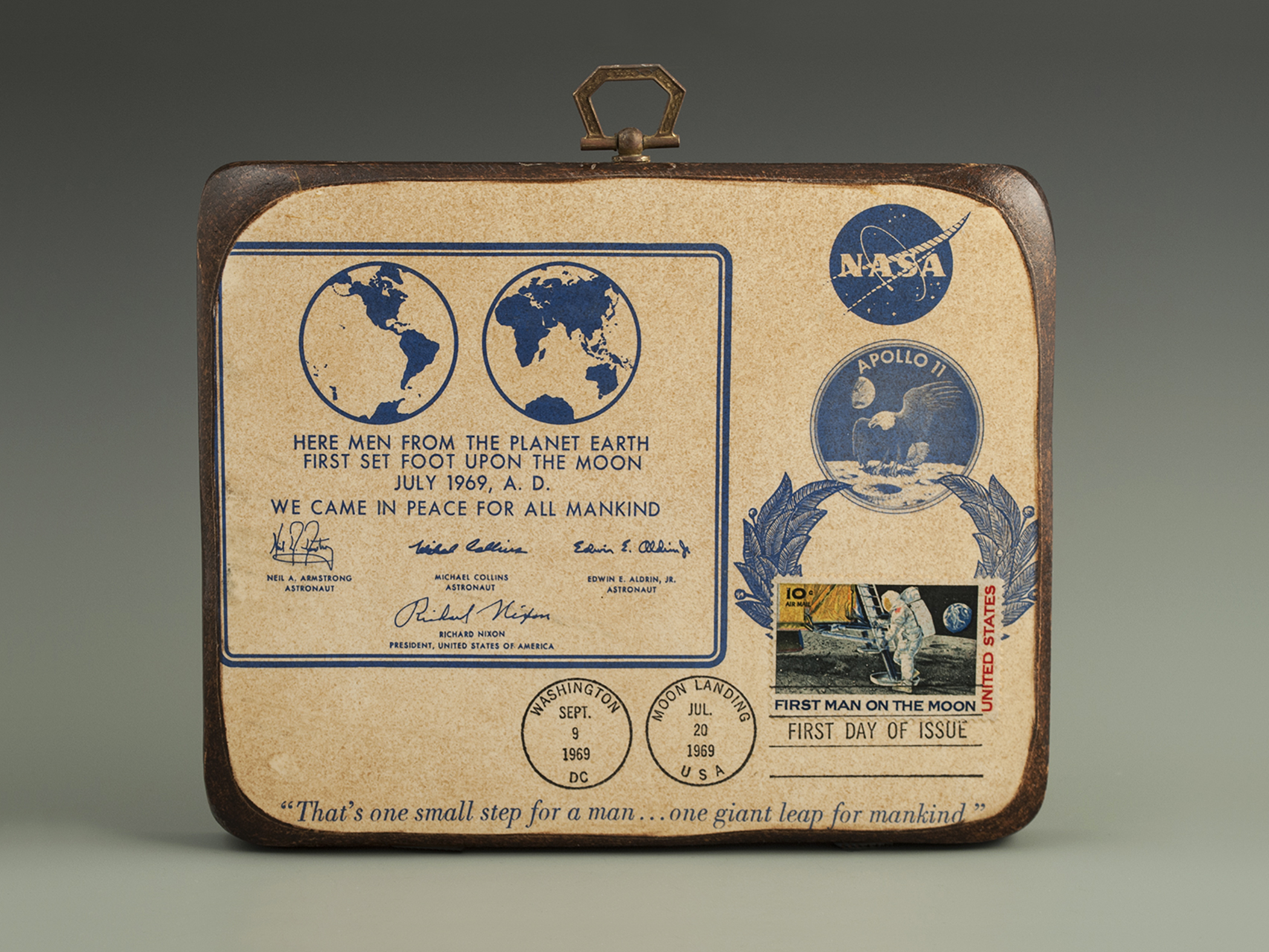Moon Landing Commemorative
Plainview, 1969

At 10:56 p.m. EST on July 20th, 1969, Apollo 11 astronaut Neil Armstrong stepped onto the Moon. I was a peach-fuzzed 15-year-old, obsessed with the space program. My closet was stacked with “collectors” copies of Life and Time which—like every other all-American magazine—had cheered on the Space Race since the days of Project Mercury.
What had gotten me most excited about the final frontier was the film 2001: A Space Odyssey. The dark, mystical expanse of outer space evoked in me a powerful wanderlust —as if my inner state of alienation would find its perfect home in that lonely realm.
The 13” black-and-white TV in my bedroom flickered as Armstrong descended the narrow ladder leading from the hatch of the LEM (Lunar Excursion Module) to the Moon’s dusty surface. Though I’d never had a drink (unless you count a few sips of Manischewitz at Passover), I had sneaked a split of cheap champagne for this occasion. When Armstrong said “I’m going to step off the LEM now,” I popped the cork.
You can easily find the video of those first steps: grainy images that roughly capture the ladder, the LEM, and Armstrong’s bungled first words: “That’s one small step for man,” said he, “one giant leap for mankind.” No one who heard the quote in real time thought it made much sense. Armstrong actually paused after the first phrase, possibly realizing that he’d blown it: He had meant to say, “That’s one small step for a man.” So the first human emotion felt on the Moon may well have been embarrassment.
Three years later, I wrangled an assignment to cover the launch of Apollo 17—the last Moon mission—for my college newspaper. It was my first assignment, and it was awesome. The Saturn V rocket, tall as a 36-story building, lifted off from Cape Kennedy at 12:33 a.m., torching the Florida sky with a white-orange glow. Seabirds scattered in a panic, and the thunder of the five flame-spewing engines dropped me to my knees.
Those astronauts spent more than three days on the Moon. They had a fucking car! But by the time of their mission, few people bothered to watch the launches or moonwalks anymore, let alone varnish First Day of Issue stamps to chunks of wood.
I once asked futurist Arthur C. Clarke if there was something he had failed to predict. “I never dreamed we would go to the Moon,” he said, “and then stop.”
The Moon shots were a fabulous, wildly expensive, symbolic, patriotic adventure—but though I thought I’d live to see the all-you-can-eat fried clam buffet at the Howard Johnson in orbit, I’m out of luck. In the end, a total of 12 men walked on the Moon—and all I got was this lousy plaque.
